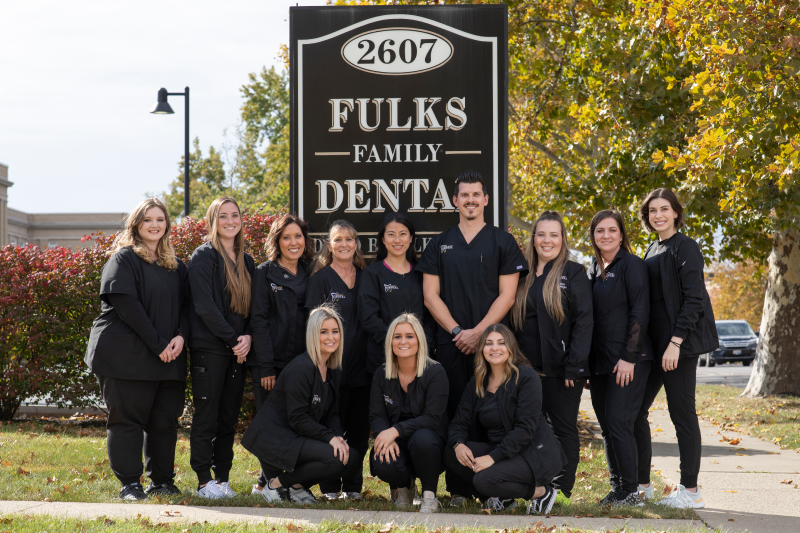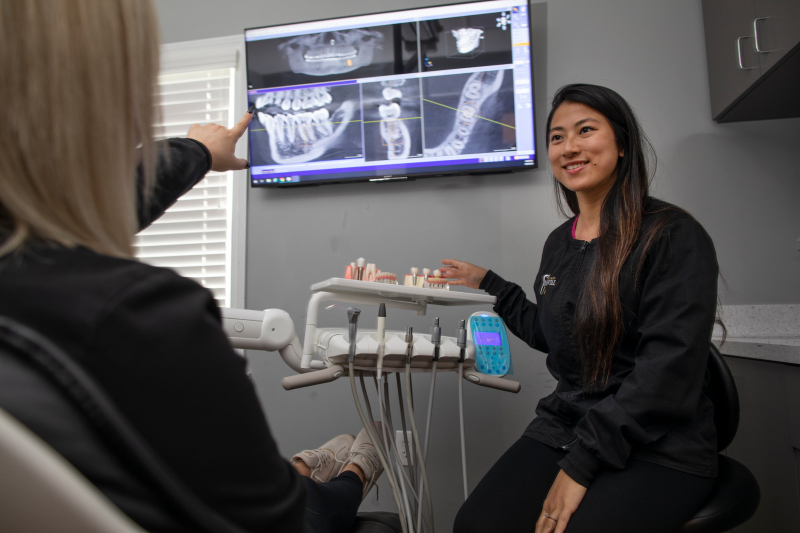Tooth Extractions

What Are the Main Reasons For a Tooth Extraction?
There are a few reasons that a dentist would recommend that you have a tooth pulled.
• Baby tooth:
If you have a baby tooth that has not fallen out, the dentist might recommend that you have it pulled to make room for the adult tooth to come through.
• Preparation for braces:
If you are going to need braces and you don’t have adequate space in your upper or lower jaw to align your teeth due to teeth crowding, your dentist or orthodontist might recommend a tooth extraction.
• Wisdom teeth:
When or before your wisdom teeth come through, your dentist will likely recommend that you have them pulled. This is especially true if they are causing pain, if they are coming in crooked, if they will negatively affect your bite or if they are impacted.
• Severe tooth decay
If you have a cavity that is very deep and the decay is too advanced for a root canal to be effective, your dentist will recommend that you have the tooth pulled.
• Severe gum disease
If you have advanced gum disease, the infection can eat away at the jawbone. If the jawbone is no longer stable, it won’t be able to hold your teeth in place. In cases like this, your only option would be extraction.
What Will the Dentist Do To Prevent Pain?
When it comes to avoiding pain during the extraction, you have two options.
• IV sedation:
If you are extremely anxious about having a tooth pulled, you should consider IV sedation. An anesthesiologist will place an IV and give you IV sedation medication. This will keep you sedated during the procedure so that you don’t feel anything while the tooth is being pulled.
• Novocaine:
If you aren’t too anxious or if your insurance won’t cover sedation, your doctor can numb your mouth using Novocaine. This will keep you from feeling any pain during the procedure and for two to three hours later. Before giving you the shot of Novocaine in your gums, the dentist will numb the area with local anesthesia so that it isn’t painful.
What Is Involved In the Tooth Extraction Procedure?
If you need a simple extraction, the procedure is easy. The dentist would rock it back and forth firmly to loosen it for removal. You won’t feel any pain. If anything you will feel some pressure.
If your tooth is impacted, you will need to have a surgical extraction which is a bit more difficult. The dentist would need to make a small incision in your gum to gain access to the tooth. In some cases, the tooth may need to come out in more than one piece. Depending on the size of the incision, you might need to get a few stitches in the incision site as well.
What To Expect After the Tooth is Pulled?
Immediately after the tooth is pulled, you will be asked to bite down on a gauze pad for 20 to 30 minutes. This is important so that the blood can clot at the extraction site. This is a very important part of the healing. When you remove the gauze, you might notice minor bleeding for up to 24 hours after the surgery.
How To Manage the Pain After the Procedure?
When the sedation or the Novocaine wears off, you may feel some pain. Fortunately, your dentist will give you some tips for pain management. These include:
• Prescription pain medication:
Some dentists will prescribe a prescription pain medication for patients who have had a tooth pulled. It is best to take your first pill before the Novocaine wears off.
• Over-the-counter pain medication:
Some dentists suggest over the counter pain relievers. Research has shown that anti-inflammatory medications such as Motrin or Advil work great for the pain after you have a tooth pulled.
• Hot and cold packs:
If your jaw is swollen, you can use an ice pack. You should put it on for 10 minutes and take it off for 20 minutes. You can do this for the first 24 hours after the procedure.
What Are the Aftercare Instructions When Having a Tooth Pulled?
You will be given aftercare instructions after having your tooth pulled. It is important that you follow the instructions to the letter to avoid pain and a dry socket.
• Eat soft, cool foods:
For the first couple days after the extraction, you should stick to a soft diet.
• No hot food or alcohol for 24 hours:
You should avoid eating hot food for the first few days after the procedure. Also, don’t drink any alcoholic beverages.
• Chew away from the extraction site:
It is best to chew on the opposite side of the extraction site. This will prevent pain and you don’t want food getting into the wound.
• Don’t spit or use a straw:
For the first few days after the procedure, you shouldn’t spit or drink through a straw. These two things can cause the blood clot to dislodge, which can delay the healing process.
If your dentist has recommended an extraction as part of your treatment, you should know what to expect before, during and after the procedure. This can reduce the anxiety that you feel on the day of your appointment. If you have any questions about tooth extractions, feel free to give us a call and we would be more than happy to speak with you!


